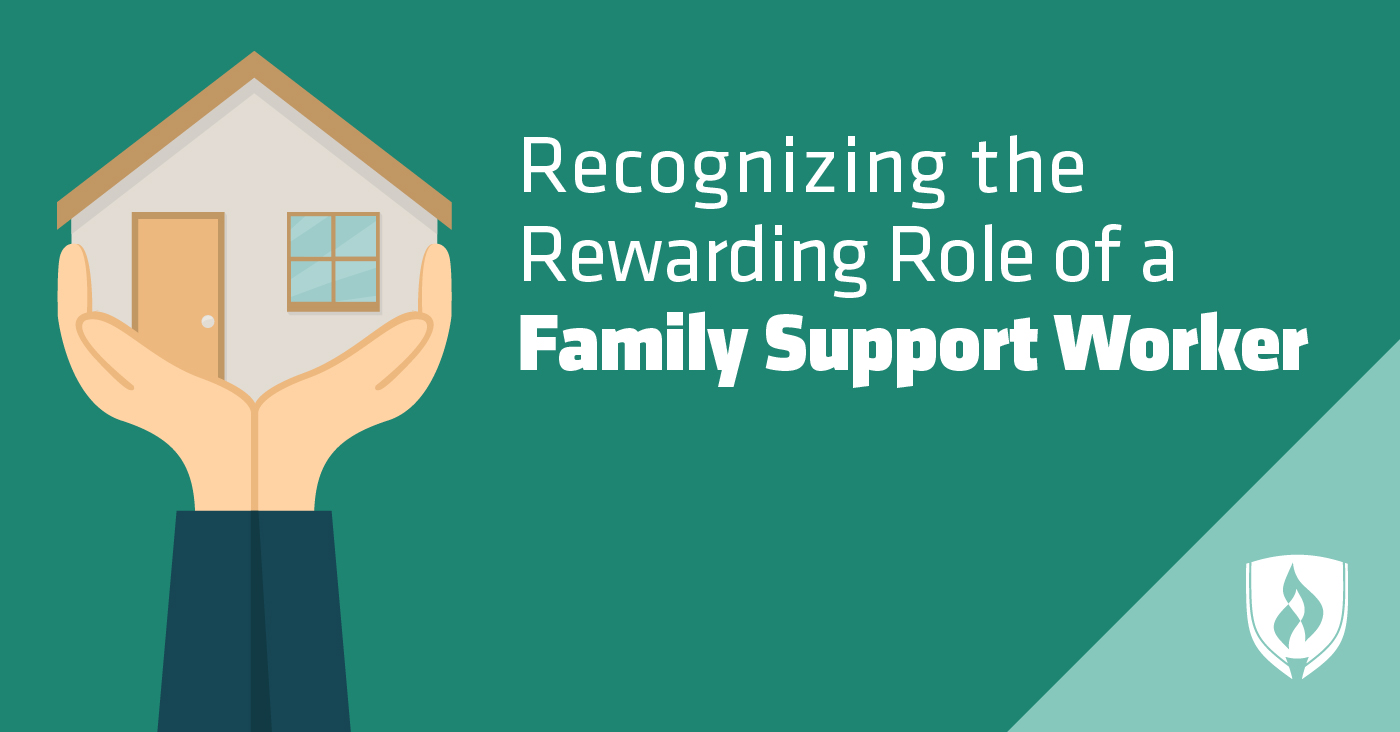
There’s a lot of people in need of help out there. A study by the Urban Institute reports that 40 percent of children in America will spend at least a year living in poverty.1 Another report from Casey Family Programs says one in eight American children will be a confirmed victim of maltreatment before age 18.2 Increasingly, community and family support has become an essential tool in combating these devastating issues we face despite America’s affluence.
Research shows that children are often best served when provided social services within a family context. Family support workers are pivotal players in the effort to holistically assist families struggling with economic insecurity, behavioral health concerns and other instabilities.
What is a family support worker?
A family support worker builds these communities by helping families stay together. “We work with our families in partnership to overcome adverse childhood experiences by addressing issues and recreating new patterns that impact their lives,” says Regina Cole, director of home visiting programs at The Family Partnership. “It is a privilege to have the opportunity to build trusting relationships with our families. That trust allows us to do the work.”
Though challenging, the role of a family support worker allows for a unique capacity to positively impact an entire family unit. An effective family support worker strengthens a family’s intergenerational relationships and assists the family in creating new dynamics moving forward.
What are some common family support worker duties?
Family support workers perform a variety of functions depending on the needs of the family they are working with. A family support worker may conduct home visits, identify a family’s service needs, make referrals, organize transportation, complete progress notes and case records, oversee quality of care, and facilitate educational classes such as parenting skills, anger management, behavior management or household management.
No matter the specific needs of the families, a family support worker will likely be asked to perform the following:
- Effective communication: Family support workers are often responsible for providing information to supervisors, co-workers and subordinates by telephone, in writing or in person.
- Establishing and maintaining relationships with clients: Support workers need to develop constructive, trusting and cooperative working relationships to be effective.
- Gathering information: Support workers may need to interview individuals and families to get a better picture of their situation and the services they may need.
- Documenting information: Many social services require paperwork—and family support workers assist by entering, transcribing, recording, storing or maintaining relevant records.
“The main responsibility is to partner with families to support their goals,” says Cole. “Family support workers aim to build upon family strengths.”
Cole says family support workers in her organization try to identify and address issues a family may be facing. This includes help with meeting basic needs, finding avenues of economic support, achieving training and education goals, addressing mental health issues and any other challenges discovered while working with these families.
“As family support workers, we aim to increase stability while decreasing risk factors our families are susceptible to,” Cole says. “Together we build on a family’s strengths and create effective utilization of their skills to create and complete goals, while encouraging parent support and family development.”
Where do family support workers work?
Family support workers are frequently employed by nonprofits and organizations providing social services to members of the greater community. Family support workers are also employed by governmental organizations to help determine a family’s eligibility for federal and state assistance programs.
Frequently, family support workers are required to travel to a family’s home. Having a reliable means of transportation and comfort with travel is often a requirement.
What is the job outlook for family support workers?
According to the Bureau of Labor Statistics, employment of family support workers (and other types of social and human service assistants) is projected to grow at a rate of 13 percent.3 The BLS states that some of this demand may be tied to an increase in older adults in need of social services and the trend of drug offenders being sent to treatment or diversionary programs.3
“We see more and more need for community-based services, meeting families in environments that are most comfortable and accessible for them,” Cole says. “We see the field focusing on and trying to remedy our stark racial disparities.”
What do you need to become a family support worker?
The answer to this will likely vary quite a bit depending on the organization and the responsibilities of the role. The BLS reports that social and human services assistant roles like family support worker require, at a minimum, a high school diploma—but further education like an associate’s or bachelor’s degree in subjects like human services, psychology and counseling is becoming more common for workers entering this field.3
“Different family support positions require different education and work experience,” says Cole. “Some positions require a Bachelor’s degree, whereas others are more focused on work experience.”
Aspiring family support workers will likely want to build experience working with organizations focused on serving communities in need. Fortunately, this is a field where relevant volunteer experience may be relatively easy to come by. Local non-profits focused on family services, women’s shelters and other charitable organizations rely on volunteers and are likely to welcome anyone passionate about helping with open arms.
Can you see yourself as a family support worker?
A career providing social services such as a family support worker can be uniquely rewarding for people who want their careers to make a difference in the world. If the role of a family support worker sounds like a fulfilling role you’d like to pursue, visit the Rasmussen University Human Services degree page to learn more about how an education can help.4
1The Urban Institute, Low-Income Working Families Initiative, Child Poverty and Adult Success [accessed October, 2019] https://www.urban.org/sites/default/files/publication/65766/2000369-Child-Poverty-and-Adult-Success.pdf
2Casey Family Programs, Community-Based Family Support: Exemplars with Implementation and Evaluation Strategies [accessed October, 2019] https://www.casey.org/media/community-based-family-support.pdf
3Bureau of Labor Statistics, U.S. Department of Labor, Occupational Outlook Handbook, [accessed October, 2019] www.bls.gov/ooh/. Information represents national, averaged data for the occupations listed and includes workers at all levels of education and experience. Employment conditions in your area may vary.
4This Human Services program is designed for non-licensed positions and does not academically qualify graduates for any state professional license. It is not intended for those seeking employment as a licensed social worker.




